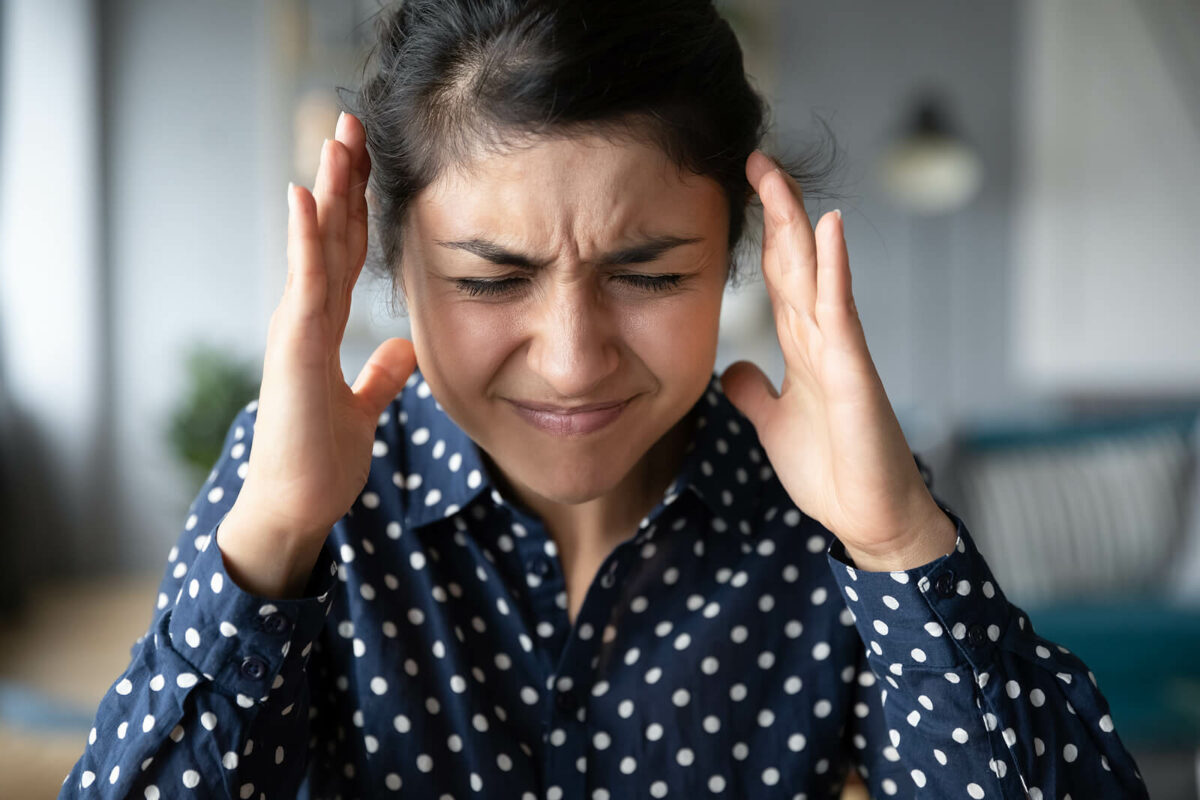- Tips for Using Hearing Aids in Different Environments - May 27, 2025
- Rechargeable Hearing Aids vs. Battery-operated Hearing Aids - May 16, 2025
- How to Effectively Communicate with Someone with Hearing Loss - May 7, 2025
Hearing loss is a common issue among older adults, with an estimated 48 million Americans experiencing some degree of hearing loss. This condition can significantly impact an individual’s quality of life, affecting their ability to communicate and connect with others. But did you know that your mood can also play a role in hearing loss? In this blog post, we will explore the link between our emotional state, our listening ability, and the potential benefits of early hearing treatment.
How our mood can lead to hearing loss
Dopamine delivery is critical to the health of the auditory nerve, as shown by a group of French researchers in 2006. Dopamine is essential for effective functioning of the nerves responsible for transmitting acoustic impulses from the ear. Without it, these nerves are unable to accomplish their job correctly.
So how does the brain make hearing happen? The auditory nerve sends sound signals from the cochlea to the brain’s auditory center, where they are processed and made clear. But if this pathway gets damaged, the most common type of hearing loss, sensorineural hearing loss, can happen. Sensorineural hearing loss is usually caused by getting older and being around loud noises. It can’t be cured, but hearing aids and cochlear implants can treat it well.
The auditory nerve and the dopamine transporter, a protein that moves dopamine to nerve synapses, were looked at by the French researchers. They concluded that dopamine is essential for keeping the auditory nerve healthy and ensuring it can process sound signals. The study was written up in the Journal of Neuroscience in May 2006.
Aging causes a decrease in dopamine production, which may contribute to diseases like Parkinson’s. Presbycusis, often known as age-related hearing loss, is a common symptom of aging. Exposure to loud noises and other environmental hazards causes slow but progressive hearing loss that is irreversible. As we age, our hearing also gets more sensitive and easily damaged. In this way, Dopamine deficiency may contribute to the development of age-related hearing loss.
How hearing loss can affect our mood
But the relationship between hearing loss and mood goes both ways. Not only can a lack of dopamine and other neurotransmitters affect our hearing, but hearing loss can also hurt our emotional state.
In fact, research has shown that there is a strong link between hearing loss and depression. In a recent study, individuals with hearing loss were more likely to experience symptoms of depression than those with normal hearing. The study also found that the more severe the hearing loss, the more likely an individual was to experience depression.
The link between hearing loss and anxiety has also been well-documented. In a study published in the American Journal of Audiology, researchers found that individuals with hearing loss were more likely to experience anxiety than those with normal hearing. The study found that the relationship between hearing loss and anxiety was solid in individuals who had difficulty communicating with others.
Early treatment is always a good idea
Early hearing treatment can help mitigate the adverse effects of hearing loss on our mood and communication ability. By treating hearing loss early on, individuals can maintain their cognitive skills and their ability to connect with others. This can help to prevent the development of depression and anxiety, as well as other negative consequences of hearing loss.
If you are experiencing symptoms of hearing loss, it is essential to schedule a consultation with a hearing specialist. At our hearing practice, we offer comprehensive hearing tests and a range of hearing treatment options. We can help you to reconnect with your loved ones and maintain your cognitive abilities, improving your overall quality of life.
Don’t let hearing loss take a toll on your emotional state. Please schedule a consultation with our hearing practice today and take the first step towards better hearing and quality of life.

